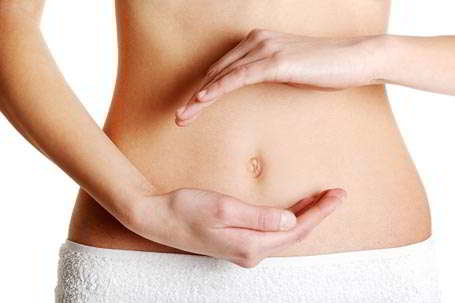

Intrauterine insemination (IUI) is one of the most straightforward forms of assisted fertility treatments, the goal of which is to increase the number of sperm that reach and fertilise the egg on their own. It involves placing sperm inside a woman’s uterus to facilitate fertilisation. This form of fertility treatment is a less invasive and less expensive option in comparison to in vitro fertilisation.
What’s the Difference Between IVF and IUI?
Many people assume that IVF and IUI are one in the same. This is not the case. IUI allows the body to do more on its own than IVF. Therefore, many consider it to be a more natural form of fertility treatment.
During the IUI process, the highest quality sperm is selected and injected into the uterus where they are left to fertilise the eggs naturally. IVF in comparison removes the eggs from the body and has them fertilised in a lab. This means that IUI is a less invasive procedure, also involving fewer drugs than IVF. This makes it considerably less expensive.
When is IUI Used?
IUI is most commonly used when a partner has a low sperm count or decreased sperm motility. However, it can also be the preferred fertility treatment for any of the following conditions:
- Couples whose reasons for subfertility are unknown.
- Ejaculation dysfunction.
- A hostile cervical condition, including cervical mucus difficulties.
- Cervical scar tissue from past procedures which may hinder the sperms’ ability to enter the uterus.
- Ovulations complications.
- Abnormality of the cervix.
- Couples with reduced sperm count or motility.
The IUI Procedure
Typically, the process of IUI is simple. The following steps outline a single cycle of IUI following the pathway we carry out here at IVI.
Preparation of the Semen
A sperm sample will be required by the laboratory several hours before insemination. The sperm is prepared by selecting those with the best motility for the procedure. To choose the correct sperm, the motile sperm is separated from the immotile in a centrifuge.
Insemination
The insemination stage of the IUI procedure is an experience similar to that of a smear test. A speculum is inserted into the vagina, and a catheter is passed through the cervix and into the uterus.
During IUI treatment, a series of 3 or 4 transvaginal ultrasound scans are performed to monitor the growth and development of the follicles (follicles are fluid-filled sacs in which an egg will develop). Once the follicle has reached optimum size an injection of hCG is administered to mature the egg and time ovulation. This injection will be given approximately 24 – 36 hours before insemination takes place.
Ovarian Stimulation (Optional)
This step is optional for patients. However, ovarian stimulation has been known to increase the chances of success by producing more than one egg to be fertilised. Daily injections are given for around 10 days. For artificial insemination to be successful, it is essential that at least one of the Fallopian tubes is patent.
Multiple Pregnancies
Despite IUI being a safe procedure, the main risk is that of multiple pregnancies. The chances of becoming pregnant with multiples are increased if you take fertility medications when having IUI treatment. Multiple pregnancies can cause serious health risks to both the mother and baby, with babies more likely to be premature or have a low birth weight.
Ovarian Hyperstimulation Syndrome
With stimulated IUI cycles, there is a small risk of developing ovarian hyperstimulation syndrome (OHSS). This can happen when your ovaries respond too well to fertility drugs. A mild case of ovarian hyperstimulation syndrome may cause you to have a bloated or uncomfortable tummy, making you feel sick. In some patients, there may also be a risk of infection after IUI, but this isn’t common.
How Successful is IUI?
As with any fertility treatment, the success of IUI depends on several factors. While IUI is a less invasive and less expensive treatment option, pregnancy success rates from IUI tend to be around one-third of those for IVF. As with any fertility treatment, the younger the woman is, the higher her chances are of getting pregnant. You are also more likely to get pregnant if you take fertility drugs to help stimulate your natural cycle.
If the couple has the IUI procedure performed each month, success rates may reach as high as 20% per cycle, depending on variables such as female age, whether fertility drugs were used, the reason for infertility and more. The success rates differ from person to person, so be sure to discuss your chances of success with your fertility specialist.
Counselling Support
Finding out that you need help to conceive can be a daunting time and is often suffered in silence due to feelings of embarrassment or failure, amongst numerous others. Unfortunately, friends, family members and colleagues may not understand or be sympathetic towards your situation. This can be extremely difficult, causing stress and anxiety to affect your relationship with your partner.
That’s why, here at IVI, we offer counselling support to all our patients undergoing treatment in our clinics. We are here to support you every step of the way, ensuring you have someone to talk to throughout the process. Whether you’re going through IUI or one of our other fertility treatments, we would highly recommend counselling support.
Contact IVI Today
As the world leader in fertility treatment, IVI can support you with your IUI treatment and any other questions around fertility treatments you may have. To book an appointment or attend one of our patient open evenings, please call 0800 52 00 161 or complete the patient contact form by clicking on this link.




Comments are closed here.